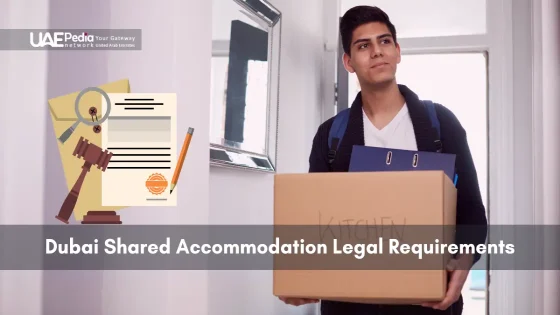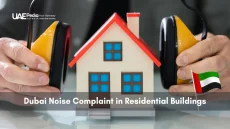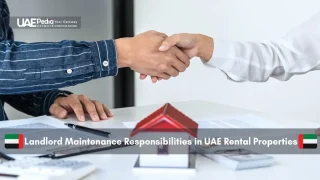Did you know that over 60% of rental disputes in the UAE stem from informal housing arrangements? Whether you’re leasing a room or managing properties, understanding local guidelines ensures smooth sailing in this vibrant market.
Emirati real estate norms blend modern efficiency with cultural priorities. Clear contracts and Ejari registration aren’t just paperwork – they’re your safety net. Tenants gain rights to fair treatment, while landlords protect their investments through official channels.
We’ll walk through three essentials: subleasing protocols, securing written approvals, and navigating cohabitation limits. These steps transform confusion into confidence, whether you’re new to the area or expanding your property portfolio.
Over 60 percent of rental disputes in the UAE originate from informal or unregistered shared-housing arrangements. Enforcing clear tenancy contracts and registering leases through the Ejari system provides a legal framework that protects both tenants and landlords. Ejari registration establishes court-recognizable agreements, streamlines dispute resolution within 90 days, and ensures compliance with occupancy limits and visa requirements.
Effective shared accommodation management hinges on three technical steps: adhering to subleasing protocols outlined in Article 24 of Law No. 26/2007, obtaining explicit written landlord consent for any additional occupants, and respecting cohabitation limits for various household types. Formal sublease addendums must specify approved occupants, shared-space definitions, and utility-cost allocations. These measures reduce conflicts, secure legal standing for all parties, and maintain operational transparency in Dubai’s modern rental market.
- Official contracts prevent 80% of common tenant-landlord conflicts
- Ejari acts as your legal compass for rental relationships
- Shared spaces require specific permissions – we’ll show you how
Overview of Dubai’s Shared Accommodation Framework
Dubai’s skyline isn’t the only thing transforming – its housing rules are getting a modern makeover too. The city’s rental market now supports flexible living arrangements while maintaining cultural values. Think of it as a blend of Bedouin hospitality meets 21st-century urban planning.
Traditional tenancy agreements have evolved to include explicit clauses for multi-occupant homes. Landlords can now specify approved cohabitants, while tenants gain clearer rights for shared spaces. This shift reflects Dubai’s focus on balancing community needs with individual privacy.
“Transparency in housing agreements isn’t just paperwork – it’s the foundation of trust between residents and property owners,” notes a Dubai real estate advisor.
Here’s how the framework impacts daily living:
| Aspect | Traditional Approach | Updated Framework |
|---|---|---|
| Contract Structure | Single-occupant focus | Multi-tenant provisions |
| Subleasing Rules | Often informal | Requires written consent |
| Tenant Protections | Basic rights | Detailed dispute resolution |
New cohabitation laws mean everyone knows their role upfront. Property managers handle maintenance schedules, while roommates split costs through documented agreements. It’s like having a roadmap for harmonious living – no more guessing who’s responsible for AC repairs!
This system benefits all parties. Tenants enjoy stable housing, landlords protect their investments, and the city maintains its reputation as a global living hub. Compliance isn’t restrictive – it’s your ticket to stress-free shared spaces.
Read More:
Understanding Dubai Laws for Shared Living
Picture this: You’ve found the perfect flatmate, but did you know your handshake deal could land you in hot water? Local housing rules turn casual arrangements into binding commitments faster than sand shifts in a desert storm.
Landlord Consent and Subleasing Restrictions
Article 24 of Law No. 26 of 2007 acts like a traffic light for shared spaces. It clearly states: no subletting without explicit written permission. Think of it as needing a hall pass from your property owner before adding roommates.
| Allowed with Consent | Prohibited |
|---|---|
| Adding family members | Renting to tourists short-term |
| Splitting rent with approved tenants | Converting living rooms to bedrooms |
| Long-term cohabitation | Commercial subletting |
One expat learned this the hard way when their “temporary Airbnb side hustle” triggered a 15,000 AED fine. Paperwork matters here more than in a notary’s office!
Key Legal Provisions to Know
Three rules govern shared spaces like the three pillars of a Bedouin tent:
1. Your tenancy contract becomes a permission slip – if it doesn’t mention roommates, assume they’re forbidden
2. Written approval isn’t a suggestion – it’s your legal armor against disputes
3. Violations can lead to eviction faster than falcons dive for prey
“Treat your rental agreement like a marriage certificate – read every line before saying ‘I do’ to roommates,” advises a Dubai property lawyer.
Smart tenants now request addendums specifying approved occupants during lease signing. It’s easier than begging for exceptions later when your best mate from back home wants to crash for six months!
The Importance of Ejari Registration
Think of Ejari as your rental relationship’s digital guardian – this government-backed system turns handshake deals into ironclad agreements. Since 2013, every lease in the city needs this official stamp to be valid. Without it? You’re navigating desert roads without GPS.
Registering Co-Habitants via the Ejari System
Roommates aren’t just names on a WhatsApp group – they’re legal entities here. The system requires listing all occupants, whether you’re splitting a studio or managing virtual office setups. Here’s the smart way to update your contract:
- Open the REST app (your digital real estate sidekick)
- Upload scanned IDs of all co-residents
- Pay the 215 AED fee – cheaper than dispute lawyers!
Benefits for Tenants and Landlords
Ejari isn’t bureaucracy – it’s your shield. Tenants gain proof of residency for visa processes, while property owners sleep easier knowing their insurance stays valid. Check how registered agreements stack up:
| Feature | Registered | Unregistered |
|---|---|---|
| Legal Standing | Court-admissible | Not recognized |
| Dispute Resolution | 90-day process | Months of headaches |
| Renewal Process | 3-click renewal | Restart from scratch |
Pro tip: Triple-check spellings – one missing letter in a name can delay processes longer than Friday traffic on Sheikh Zayed Road. Keep digital copies handy; you’ll need them for everything from internet setup to parking permits.
Guidelines for Subleasing and Shared Accommodation
Imagine your cousin wants to crash in your spare room for six months – sounds simple, right? Not quite. Property arrangements here demand more foresight than packing sunscreen for a desert hike. Let’s break down how to navigate approvals and paperwork like a pro.
Steps to Obtain Written Approval
Getting the green light isn’t just polite – it’s mandatory. Follow this three-step tango:
- Draft a formal request specifying names, dates, and purpose
- Attach potential cohabitants’ Emirates IDs (scanned copies work)
- Wait for stamped approval – verbal nods won’t cut it
One tenant learned this the hard way when their unapproved sibling stay triggered a lease termination notice. Paper trails protect everyone!
Importance of a Detailed Sub-Lease Contract
Your agreement should be clearer than freshly Windexed windows. Essential clauses include:
- Exact shared spaces (balconies count!)
- Utility payment splits down to the dirham
- Move-out procedures for sudden departures
“A vague contract is like a sandcastle – it crumbles under pressure,” warns a property law specialist.
| Strong Contract | Weak Contract |
|---|---|
| Lists all permitted activities | Uses phrases like “reasonable use” |
| Includes emergency contacts | Omits dispute resolution steps |
Smart renters now treat contract reviews like recipe checks – missing one ingredient ruins the whole dish. Keep digital and physical copies handy; you’ll need both when setting up utilities or resolving disagreements.
Navigating Tenancy Contracts in Dubai
Ever signed a document without reading the fine print? In the Emirates, that’s like riding a camel blindfolded. Your lease isn’t just paperwork—it’s the rulebook for your entire rental journey.
Strong contracts have three superpowers: they list exactly who can live there, outline maintenance duties, and specify payment timelines. Think of these documents as friendship bracelets for tenants and landlords—they keep everyone connected through clear expectations.
Here’s what makes these agreements stick:
- Explicit roommate approval clauses (no vague “guests” wording)
- Maintenance response timelines (24 hours for AC issues? Yes, please!)
- Renewal terms spelled out like IKEA instructions
Smart renters treat contract reviews like sunscreen application—miss a spot, and you’ll regret it later. One expat avoided a 5,000 AED fine by spotting a “no musical instruments after 8 PM” clause before signing.
“Your lease should answer the ‘what ifs’ before they happen—like who replaces broken lightbulbs or handles surprise plumbing issues.”
| Strong Contract Feature | Why It Matters |
|---|---|
| Detailed inventory list | Prevents deposit disputes |
| Approved payment methods | Avoids late fee confusion |
| Move-in/move-out checklists | Documents property condition |
Pro tip: Circle dates like contract end days and payment deadlines in red. Better yet—set phone reminders. When negotiating terms, ask for Arabic/English bilingual versions to ensure complete understanding. And always, always get that coffee with a property lawyer before signing anything!
In-Depth Analysis of Article 24 of Law No. 26 of 2007
What happens when a casual roommate situation collides with strict housing laws? Article 24 of Law The No. 26 of 2007 acts like a referee in this high-stakes game. This regulation defines exactly what counts as unauthorized cohabitation – and the penalties for breaking these rules.
When Sharing Becomes Illegal
Under these tenancy laws, unauthorized sharing isn’t just about extra toothbrushes in the bathroom. It includes:
- Adding occupants without the property owner’s written consent
- Changing room usage (like turning a study into a bedroom)
- Short-term rentals without proper licensing
A recent case saw a tenant fined 10,000 AED for listing their spare room on a vacation rental app. The court ruled this violated Article 24’s subleasing restrictions. Eviction notices arrived faster than a sandstorm warning!
| Violation Type | First Offense | Repeat Offense |
|---|---|---|
| Unauthorized guests | Warning letter | 5,000 AED fine |
| Commercial subletting | 15,000 AED fine | Lease termination |
“This article isn’t about restricting freedom – it’s about preventing exploitation,” explains a UAE property rights advocate. “Both sides get clear boundaries to operate within.”
Smart tenants now take three steps to stay compliant:
- Review contracts for specific cohabitation clauses
- Request addendums for long-term guests
- Update Ejari registration with new occupant details
These regulations create a safety net. Property owners maintain control over their assets, while residents avoid surprise penalties. Think of it as having guardrails on Sheikh Zayed Road – they keep everyone moving smoothly in the right direction.
Shared Accommodation Options: Unmarried Couples and Families
What’s changed for modern households in the Emirates? Recent reforms now recognize diverse living situations while maintaining community standards. These updates allow more flexibility for those building lives together outside traditional family structures.
Recent Changes in Cohabitation Laws
2022 brought landmark adjustments to personal status regulations. Unmarried partners can now legally reside together in most residential areas – a shift from previous norms. This applies to both expatriate and visiting couples, provided they follow proper documentation processes.
Key updates include:
- Removal of mandatory marriage certificates for cohabitation
- Equal housing rights for nuclear families and non-related groups
- Streamlined visa processes for domestic partners
“These changes reflect the UAE’s commitment to inclusive urban living while respecting cultural values,” shares a Dubai-based housing consultant.
Differences in Living Arrangements
Household types now fall into two main categories under the law:
| Family Units | Non-Related Groups |
|---|---|
| Parents with children | Friends/colleagues sharing |
| Married couples | Unmarried partners |
| Maximum 6 occupants | Maximum 4 occupants |
For those exploring shared accommodation options, consider these factors:
- Building type (some communities still restrict non-family groups)
- Lease duration requirements
- Utility billing structures
Young professionals often prefer studio clusters, while families opt for villa shares. Always verify community guidelines – what’s allowed in Jumeirah might differ from Silicon Oasis!
Rules for Sharing Common Areas and Facilities
Who gets dibs on the rooftop pool at sunset? Shared spaces work like highways here – everyone follows lane markers to avoid collisions. Clear guidelines keep lobbies, gyms, and laundry rooms from becoming battlegrounds.
Usage of Amenities in Shared Living
Think of your building’s facilities as community treasures. Most properties enforce time slots for high-demand areas like BBQ pits or tennis courts. A simple booking app often solves 90% of scheduling conflicts before they start.
| Common Area Issue | Smart Solution |
|---|---|
| Pool overcrowding | Rotating access days by floor |
| Gym equipment disputes | 30-minute usage timers |
| Laundry room backups | Reserved slots via building app |
“Treat shared spaces like your favorite café – clean up after yourself, respect others’ time, and keep the vibe welcoming,” suggests a Dubai property manager.
Three golden rules for harmony:
- Wipe down machines after use (sweat stains aren’t decor)
- Limit guest access during peak hours
- Report maintenance issues promptly
Tenant rights include fair access to amenities listed in your lease. But with great lounge privileges come great responsibilities – leaving messes can lead to fines faster than sand sticks to sunscreen. Keep communication channels open; a friendly group chat often resolves noise complaints before they escalate.
Responsibility and Compliance Under Dubai Rental Laws
Ever wondered why some rental partnerships thrive while others crash like desert dune bashing? Successful co-living hinges on everyone knowing their role – think of it as a well-choreographed dance where missteps cost more than bruised toes.
Tenants carry three core duties under local rules:
- Timely rent payments through approved channels
- Immediate reporting of maintenance needs
- Respecting occupancy limits like guarded treasure
Property owners play defense and offense simultaneously. Their playbook includes regular inspections and maintaining public area safety standards. Check how proactive versus reactive approaches differ:
| Proactive Management | Reactive Approach |
|---|---|
| Quarterly maintenance checks | Fixing issues after complaints |
| Clear communication channels | Silence until problems erupt |
“Compliance isn’t paperwork – it’s the grease that keeps the rental engine running smoothly,” says a tenant relations expert from a major brokerage.
Smart communicators avoid 70% of disputes through simple habits:
- Weekly check-in messages via building apps
- Shared digital logs for repair requests
- Neighbor agreements on quiet hours
Staying current with regulations works like updating your phone’s OS – skip it, and things glitch. Bookmark official portals, attend free legal workshops, or partner with property managers who track changes like hawk-eyed falconers. When both sides commit to transparency, rental relationships flourish like date palms in oasis soil.
Managing Disputes and Penalties for Non-Compliance
Roommate tensions can escalate faster than summer temperatures in the Gulf. Common conflicts often spark over unpaid utility bills, unauthorized guests, or damage to shared spaces. Imagine returning from a desert camping trip to find your flatmate turned the living room into a makeshift gym – equipment included!
Understanding Fines and Eviction Risks
Violating housing agreements here isn’t like forgetting to take out the trash. First offenses typically draw warnings, but repeat issues hit wallets hard:
- 5,000 AED fines for unapproved subletting
- Immediate eviction for exceeding occupancy limits
- Shared liability for property damage repairs
| Violation | First Penalty | Repeat Penalty |
|---|---|---|
| Noise complaints | Written warning | 1,000 AED fine |
| Unauthorized pets | 500 AED fee | Lease termination |
“Always document disagreements – photos and timestamps are your best allies if disputes reach authorities,” advises a Dubai tenant rights advocate.
Legal Recourse for Disputes
Tenants aren’t left stranded in conflict situations. The Rental Dispute Center handles cases within 30 days through three steps:
- Submit evidence (contracts, messages, photos)
- Attend mediation sessions
- Receive binding arbitration if unresolved
Pro tip: Avoid legal headaches by scheduling monthly check-ins with housemates. Use apps like Splitwise to track shared expenses transparently. Remember – clear communication with property owners prevents 80% of disputes before they erupt!
Best Practices for Ensuring Compliance in Shared Accommodation
What’s the secret sauce for harmonious co-living? It’s simpler than you think – a mix of clear communication, updated knowledge, and mutual respect. When everyone plays their part, shared spaces transform from potential battlegrounds into thriving communities.
Strategies for Tenants
Renters can avoid 90% of issues with three smart habits. First: review contracts like you’re studying for finals. Highlight occupancy limits and guest policies. Second: bookmark official housing portals for rule updates – laws shift faster than desert sands. Third: use apps like Splitwise for the track shared expenses transparently.
Advice for Landlords
Property owners should treat management like a team sport. Implement digital tools for maintenance requests and payment tracking. Host quarterly check-ins with occupants – a 15-minute chat prevents months of headaches. Stay ahead by subscribing to government housing alerts through the DLD app.
“Compliance works best when tenants and owners view it as teamwork, not enforcement,” shares a property manager with 12 years of Dubai experience.
| Focus Area | Tenant Action | Landlord Action |
|---|---|---|
| Rule Updates | Attend free RERA workshops | Distribute policy changes in writing |
| Documentation | Store digital contract copies | Maintain updated Ejari records |
| Dispute Prevention | Report issues within 24 hours | Respond to queries in 48 hours |
Successful examples include shared villa groups using Google Calendars for laundry rotations and landlords offering rent discounts for timely utility payments. Remember: staying informed isn’t optional – it’s your armor against fines and misunderstandings.
Treat your lease like a living document. Review it quarterly with housemates or property managers. When all parties follow the rules, everyone enjoys smoother relationships – and more time to explore the city’s wonders!
Dubai Shared Accommodation Legal Requirements
Legal compliance in group housing works like a desert compass – it keeps everyone oriented toward smooth tenancy. Three pillars form the foundation: documented consent, official registration, and transparent agreements. Miss one, and you’re risking sandstorms of disputes.
Landlords must provide stamped approval for every new occupant – even long-term guests. One resident learned this after hosting a cousin for three months without paperwork, resulting in lease termination. As a property lawyer advises: “Treat approvals like vaccination records – outdated ones offer zero protection.”
“Updated Ejari registrations are your tenancy’s heartbeat – skip them, and the whole system falters,” notes a RERA-certified advisor.
Consider these compliance essentials:
- Annual contract reviews with all cohabitants
- Digital copies of approvals for instant access
- Utility split agreements signed by all parties
| Compliant Setup | Risky Approach |
|---|---|
| Ejari-listed occupants | Verbal agreements |
| Scheduled inspections | Avoiding property checks |
Regular maintenance logs and payment receipts become your safety net during disagreements. Pro tip: Set calendar reminders for contract renewal dates – they sneak up faster than sunset over the Arabian Gulf!
Staying current with real estate regulations transforms potential headaches into confidence. Review your arrangements quarterly, and you’ll navigate group living like a seasoned Bedouin trader – prepared, protected, and ready for whatever the journey brings.
Impact of Shared Accommodation on Rent and Property Rights
Balancing budgets and boundaries in group living works like splitting a mezze platter – everyone gets a fair share without emptying the dish. Shared spaces often reduce individual costs, but they reshape ownership dynamics in unexpected ways. Let’s unpack how smart planning creates win-win scenarios.
Rental Agreement Essentials
Strong contracts act as financial blueprints. They should detail how rent splits adjust if someone moves out unexpectedly. One group saved 20% monthly by including a clause for temporary subletters during summer breaks. Key elements to negotiate:
- Payment timelines for each occupant
- Damage deposit refund conditions
- Rules for overnight guests affecting utility costs
Property Management Strategies
Seasoned managers treat shared units like community gardens – regular check-ins keep things thriving. Digital tools simplify tracking:
| Tool Type | Traditional Approach | Modern Solution |
|---|---|---|
| Rent Collection | Cash payments | Auto-split bank transfers |
| Maintenance | Phone calls | App-based reporting |
| Approvals | Paper forms | E-signature platforms |
“Landlord approval isn’t a hurdle – it’s quality control for sustainable co-living,” explains a property manager overseeing 150 units.
Best practices include quarterly walkthroughs and shared expense dashboards. When all parties stay informed, rent becomes a team effort rather than a solo burden. Remember: clear communication prevents 70% of disputes before they start!
Check out the below:
Final Insights on Dubai’s Shared Accommodation Regulations
Navigating group living here works like following a well-marked trail – stray off-path, and you risk unexpected detours. Clear agreements and Ejari registration act as your roadmap, while landlord approvals serve as essential checkpoints. These rules aren’t barriers – they’re the guardrails that keep everyone’s journey smooth.
Tenants gain peace of mind with documented rights, and property owners safeguard their investments through official channels. Regular contract reviews and digital reminders for renewal dates prevent 80% of common hiccups. Bookmark government portals to track regulation updates – they shift quicker than desert sands after a storm.
Three quick tips for stress-free cohabitation:
- Treat approvals like sunscreen – reapply annually
- Use apps to split bills faster than falcons dive
- Host monthly check-ins over karak chai
Stay curious, stay informed, and watch your rental experience flourish under the Arabian sun. When everyone plays by the laws, shared spaces transform into thriving hubs of connection. Ready to explore more? Your next chapter in harmonious living starts now.
Yes, but written landlord approval is mandatory under Dubai’s tenancy laws. Unauthorized subleasing or adding occupants without consent violates Article 24 of Law No. 26 (2007), risking fines or eviction. Always update your Ejari registration to reflect co-tenant details.
Unapproved subletting can lead to immediate lease termination, AED 5,000–50,000 fines, or legal disputes. Landlords may also report violations to Dubai’s Rental Dispute Center. Protect yourself by drafting a sub-lease contract and securing formal consent.
A> Recent UAE reforms permit cohabitation for unmarried couples in certain areas like Dubai and Abu Dhabi. However, landlords or building management may still impose their own rules. Confirm policies upfront to avoid conflicts.
Ejari legally binds all occupants to the tenancy contract, ensuring rights to utilities, privacy, and fair eviction processes. It also helps landlords track authorized tenants and resolve disputes through official channels.
A> Shared facilities like pools or gyms must be equally accessible unless specified otherwise in your contract. Some buildings charge extra fees for multiple users—review your agreement and discuss usage terms before signing.
A> If they’re on the Ejari contract, you can jointly file a case at the Rental Dispute Settlement Centre. For unofficial arrangements, resolution depends on your private sub-lease terms. Always formalize roommate agreements to avoid financial risks.



















